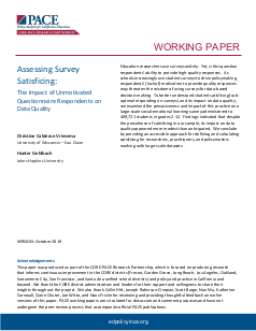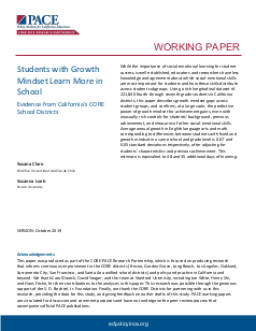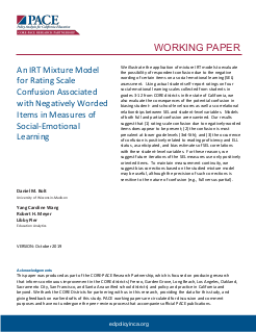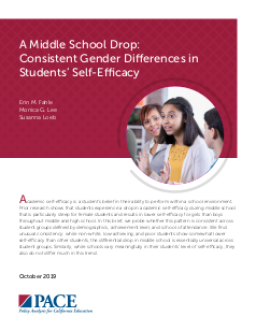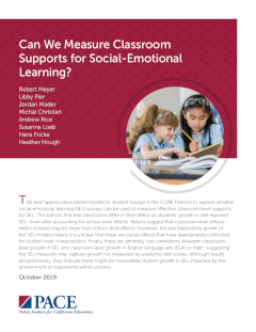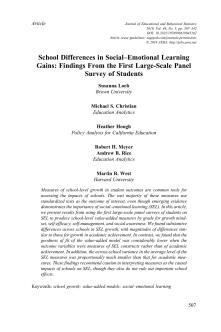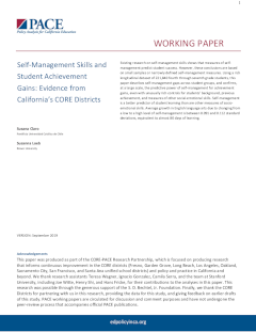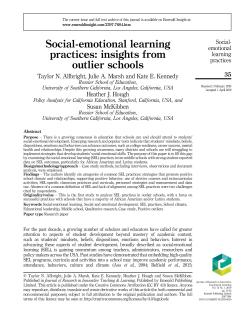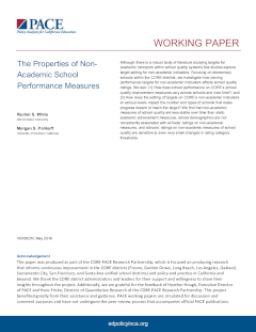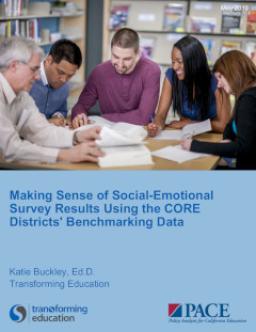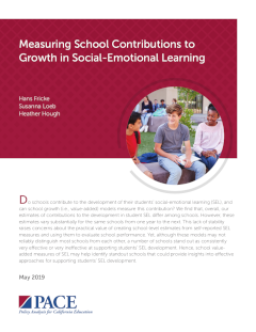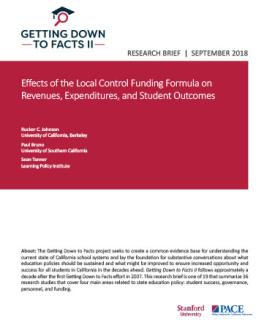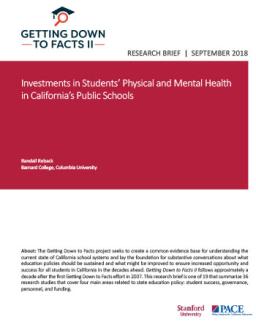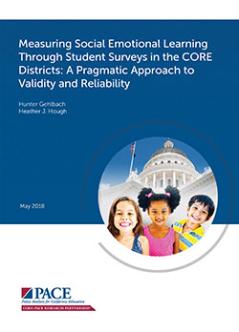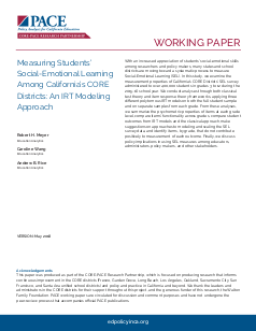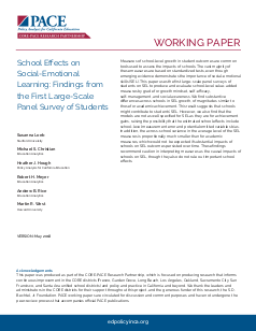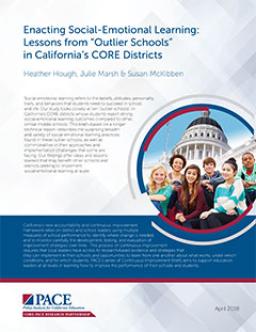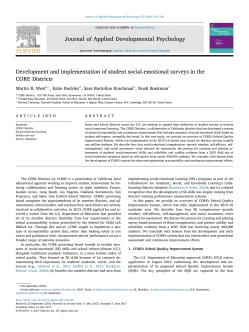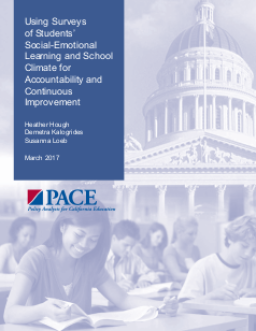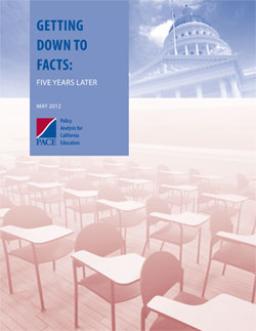Summary
Summary
Summary
Summary
Summary
Summary
Summary
Summary
Summary
Summary
This report presents benchmarking data on self-report student surveys measuring social-emotional learning (SEL) from nearly half a million students in grades 4 through 12 across 8 CORE districts in California. The data provide means and standard deviations by construct, grade level, and subgroup, and can serve as a proxy for a nationally-normed sample for other schools across the country looking to administer the CORE survey.
Summary
This report examines the stability of school effects on social-emotional learning (SEL) over two years in California's CORE districts. The correlations among school effects in the same grades across different years are positive but lower than those for math and ELA. While these effects measure real contributions to SEL, their low stability draws into question whether including them in school performance frameworks and systems would be beneficial.
Summary
California's Local Control Funding Formula (LCFF) has increased per-pupil revenues, especially for low-income districts, and provided more flexibility in expenditures, leading to improvements in student outcomes. The funding was distributed based on the proportion of disadvantaged students, and expenditure increases were primarily allocated to teachers, pensions, and special education. The policy was implemented during a time of increased K-12 funding after the Great Recession and existing revenue distribution patterns.
Summary
Children's health, especially in low-income households, affects their future success. California has improved access to healthcare but still has gaps due to poor quality care and lack of access to providers. Mental health is a growing concern, but the state has fewer services in schools than other states. The brief explores the benefits of school-based health services, which are currently lacking in California, and estimates it would cost less than $100 per pupil to improve access. California is missing out on federal funds due to its low spending on Medicaid for school-based health services.
Summary
Summary
Summary
Summary
Summary
This study explores ten "outlier schools" in California's CORE districts that have strong social-emotional learning outcomes. The brief and infographic summarize the various practices found in these schools and the common implementation challenges faced. The findings offer lessons that can help other schools and districts implement social-emotional learning at scale.
Summary
Summary
The use of social-emotional learning (SEL) and school culture/climate (CC) measures is a promising way to understand school performance. SEL and CC measures are reliable, distinguish between schools, and relate to academic and non-academic measures. They can identify areas for improvement within schools, such as subgroup gaps. Incorporating these measures into higher stakes accountability systems requires further research.
Summary
This report commemorates the fifth anniversary of the Getting Down to Facts project, which sought to provide a thorough and reliable analysis of the critical challenges facing California’s education system as the necessary basis for an informed discussion of policy changes aimed at improving the performance of California schools and students. The report focuses on the four key issues that received emphasis in the Getting Down to Facts studies: governance, finance, personnel, and data systems.
